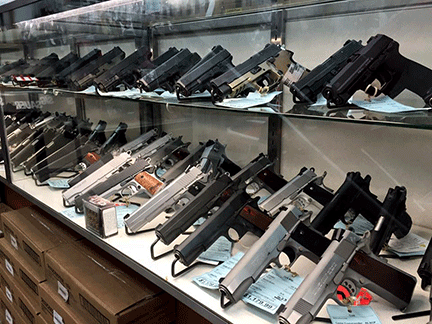On Wednesday, a bill that would have placed an excise tax on gun and ammunition retailers, not purchasers, to fund gun violence prevention programs failed to pass the State Senate.
The bill, which was introduced by Assemblymember Marc Levine (D-Marin County) died in a 20-12 vote with 8 senators failing to cast a vote. It needed 27 votes to pass. This was the third time the bill had been introduced and failed–including last year.
According to the bill, it proposed a 10% excise tax on the sales of handguns while rifles, shotguns, ammunition and other parts to build firearms were at 11%. He proposed the excise tax begin July 1, 2023.
Upon introducing the bill, Levine pointed to the first five months into 2022, California has seen 1,159 incidents of gun violence, including 594 gun related deaths. According to the Gun Violence Archive, at this pace, California could end up with one of the highest yearly incidents of gun violence and gun related deaths in state history. As families across the state struggle to make sense of this devastation, Levine is taking action to end gun violence.
He said AB 1227 would generate over $118 million annually to fund proven programs that reduce gun violence in the communities that need it most.
Also on Wednesday, another firearm bill also failed to pass out of the State Legislator. Senate Bill 918 (CCW Reform), authored by Senator Anthony J. Portantino (D – La Cañada Flintridge), a bill that would have strengthened California’s conceal-carry laws failed to pass out of the State Assembly—this bill was in response to the Supreme Court decision expanding rights to carry firearms in public.

